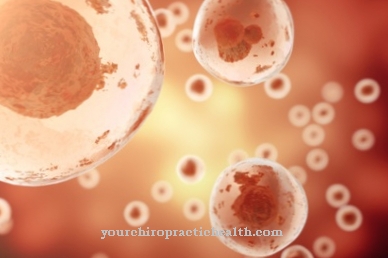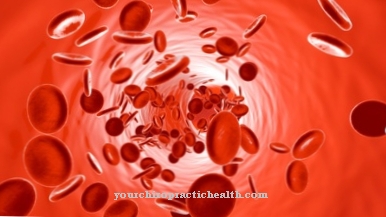Enthusiasm is a property that is considered to be desirable in the modern world. Enthusiastic people have an above-average interest in the things they do and are very committed to them - in their working life as well as in their private or social spheres. In the world of work, enthusiasm is a key skill.
What is the enthusiasm?

The term “enthusiasm” has had different meanings throughout history. Originally it was understood as inspiration from divine spirit. The Greek word “enthusiasm” moves between fulfillment and obsession, so it can be understood positively and negatively. In the 4th century the "enthusiasts", a Christian-Syrian sect, believed they could force the presence of the Holy Spirit through constant prayers, meditation and asceticism. Even in modern times there have been movements that were considered “enthusiastic” in this sense, for example some Protestant groups in the 16th and 17th centuries. The term became more and more a synonym for religious fanatics of various stripes.
From the 18th century onwards, “enthusiasm” was primarily understood as a worldly passion for a certain cause of which a person or group is convinced and for which they stand up with great devotion and joy. Enthusiastic people are in a state of excitement. Enthusiastic is someone who is open to new ideas and lets himself be convinced of the advantages of something that he is willing to actively support it. The necessary mental strength (motivation) is drawn from this commitment to the cause that inspires.
Function & task
Enthusiasm goes hand in hand with a high level of motivation. Enthusiastic people do not suffer from boredom or indifference, because they can find interesting aspects of many things or facts that stimulate them to act. Enthusiastic people are welcome in the world of work or in voluntary work, because they are not only characterized by their drive, but are also the best ambassadors for the cause because of the joyful mood in which they act. People who are enthusiastic about something can also win other people over to it. Enthusiasm is contagious.
Characteristic for real enthusiasm are voluntariness and inner drive. Enthusiastic people usually find topics and subject areas for which they develop an above-average interest, combined with the desire to work in this field and to advance the matter. This desire goes beyond a rational interest and is associated with highly positive emotions in the enthusiastic. Enthusiasm creates joie de vivre.
Physiologically, enthusiasm is a state of excitement in the midbrain. This allows a number of neurotransmitters to be released in a chain of reactions, including adrenaline, noradrenaline and dopamine, as well as endorphins and enkephalins.
Not only naturally enthusiastic people experience this feeling of elation. Everyone can kindle the fire of enthusiasm within themselves. For this it is important to perceive your own interests and strengths and to deal with them. Since content that is of interest is learned more easily and problems are solved more quickly, a sense of achievement quickly emerges that can create a spiral of enthusiasm. The first sign of enthusiasm is the devoted, joyful occupation with the exciting topics, the so-called flow.
In addition, enthusiasm not only motivates commitment to the cause, but also helps to overcome difficulties that arise by searching intensively and persistently - and usually successfully - for solutions. This, in turn, strengthens the sense of achievement and rekindles the ability to be enthusiastic.
Enthusiastic people not only experience success through their commitment, but also feelings of happiness and fulfillment. They do things “with passion”, “go completely into the matter”. Often they also take responsibility for other people who motivate and guide them. They are often perceived as personable and are occasionally mentioned as role models, as their skills, knowledge and the extremely positive view of their work attract and stimulate other people. Enthusiastic people try to convince others, not to persuade them. Depending on the subject and the extent of their enthusiasm, they can be seen as “doers” or as “idealists”.
Illnesses & ailments
Enthusiasm goes hand in hand with numerous characteristics that are already found in childhood: joy of discovery, creativity, immersion in playful handling of an object or thing, apparently unlimited time to deal with the object of enthusiasm.
However, enthusiasm can also develop negative characteristics when it reaches its limits. Enthusiastic people can lose their sense of reality or block out certain - problematic - areas of the matter. This can lead to dogmatism and impaired communication skills, which can affect their potential to motivate others.
The positive spiral that the enthusiasm develops in the best case scenario can also turn into its opposite. Anyone who cannot generate resources and comrades-in-arms with the best of intentions, arguments and motives in the long term will be restricted in their actions and the resulting experiences of success and feelings of happiness. This leads to experiences of frustration. If those capable of enthusiasm fail to act out their thirst for action in other ways and generate the associated feelings of success and happiness in other ways, they are at risk of falling into depression.
One of the most well-known types of depression today is exhaustion depression known as burnout. Although it can have different causes and characteristics, it often goes hand in hand with the emotional “burning out” of a person who was previously “burned for something” intensively and often for a long time. This means that all the positive effects of the inner drive and the great creative power of enthusiasm, if they cannot be lived out in a positive environment or under supportive conditions, can turn into their opposite. Meaning and thus the motivation to act escape from enthusiasm. The activity that generated the joy of life comes to a standstill.












.jpg)



.jpg)










.jpg)
